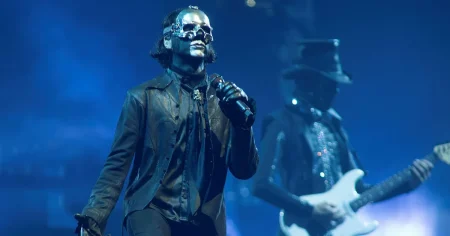Kaliane Bradley’s debut novel, The Ministry of Time, presents a captivating premise: in the near future, the British government develops technology capable of extracting individuals from the past and integrating them into the present. The novel follows a second-generation immigrant tasked with facilitating this transition for Captain Graham Gore, a member of the ill-fated Franklin Expedition of 1847. While the novel offers glimpses of potential with its intriguing concept and the dynamic between the protagonist and Gore, it ultimately struggles to capitalize on these elements, leaving the reader with a sense of unfulfilled promise. The narrative meanders through various genres, flirting with historical fiction, romance, and social commentary without fully committing to any, resulting in a diluted experience.
The central relationship between the unnamed narrator and Captain Gore forms the emotional core of the novel. The narrator, chosen for her cultural sensitivity as a second-generation immigrant, grapples with the unexpected challenges of guiding a man from the Victorian era through the complexities of modern life. Gore, surprisingly adaptable, navigates the 21st century with a mix of bewilderment and pragmatic acceptance, his staunch Victorian morality clashing humorously with the narrator’s contemporary perspective. Bradley skillfully crafts their interactions, injecting moments of lighthearted humor that provide some of the novel’s most enjoyable passages. However, even this promising dynamic fails to fully ignite, hampered by the novel’s overall lack of direction.
The narrative alternates between the present-day integration of Gore and flashbacks to the harrowing final days of the Franklin Expedition. While Bradley’s prose occasionally sparkles with vivid imagery in these retrospective segments, her penchant for elaborate metaphors often becomes excessive, detracting from the emotional impact of the scenes. The stark realities of survival in the Arctic are juxtaposed with the mundane yet equally challenging aspects of Gore’s assimilation into modern life, creating a thematic tension that the novel never fully explores. The constant shifting between timelines and genres further contributes to the sense of narrative fragmentation, preventing the reader from fully investing in either storyline.
The overarching mystery of the Ministry of Time’s motives and the rationale behind extracting historical figures remains largely unexplored, adding to the novel’s overall sense of incompleteness. The narrative focuses primarily on the individual experiences of the narrator and Gore, neglecting the broader implications of this time-bending technology. This lack of exploration diminishes the potential for deeper thematic resonance and leaves the reader with unanswered questions about the ethical and societal ramifications of manipulating the past. The novel hints at the potential for exploring the complexities of colonialism and cultural identity, given the narrator’s background and Gore’s historical context, but these threads are left underdeveloped, further contributing to the narrative’s fragmented nature.
The novel’s biggest flaw lies in its inability to commit to a clear direction. It oscillates between various genres and themes, never fully embracing any single element. The potential for a compelling historical romance is hampered by the novel’s lack of focus on the developing relationship between the narrator and Gore. Similarly, the opportunity to delve into thought-provoking social commentary on immigration and cultural adaptation is squandered by the narrative’s preoccupation with surface-level observations and humorous anecdotes. The result is a narrative that feels both overstuffed and underdeveloped, leaving the reader with a lingering sense of dissatisfaction.
The Ministry of Time offers a tantalizing premise with its unique blend of historical fiction, speculative fiction, and romance. The dynamic between the narrator and Gore provides moments of genuine humor and emotional connection, and Bradley’s evocative prose occasionally shines through. However, the novel’s inability to commit to a clear direction, its fragmented narrative structure, and its underdeveloped themes ultimately prevent it from reaching its full potential. The result is a reading experience that, while not unpleasant, leaves the reader wanting more substance and a clearer sense of purpose. The novel’s strengths are overshadowed by its lack of focus, leaving a final impression of a missed opportunity to truly explore the fascinating possibilities inherent in its intriguing premise.














